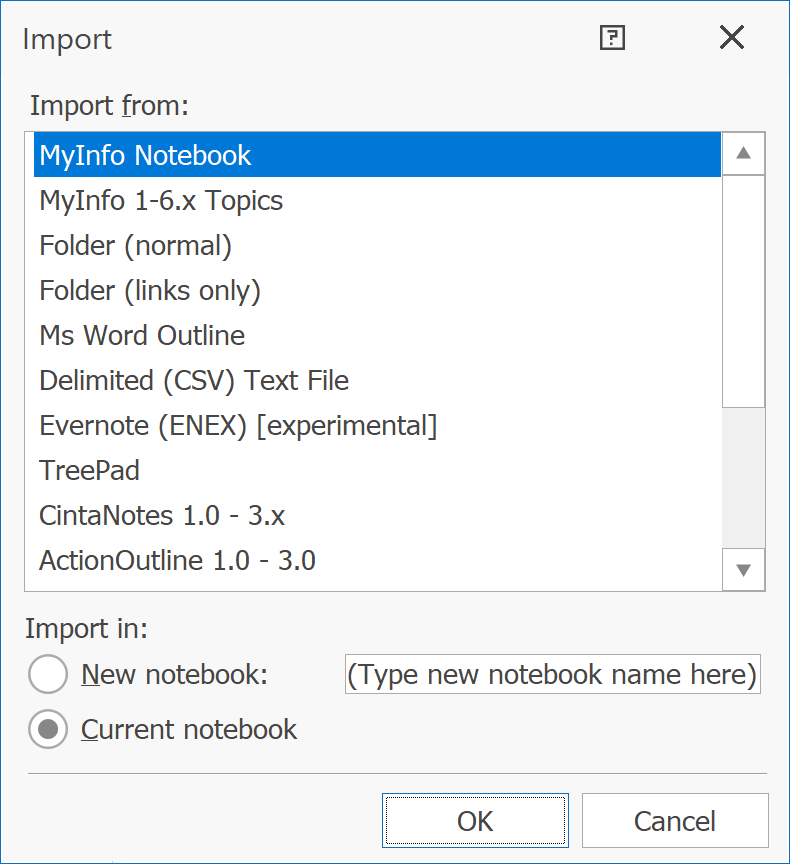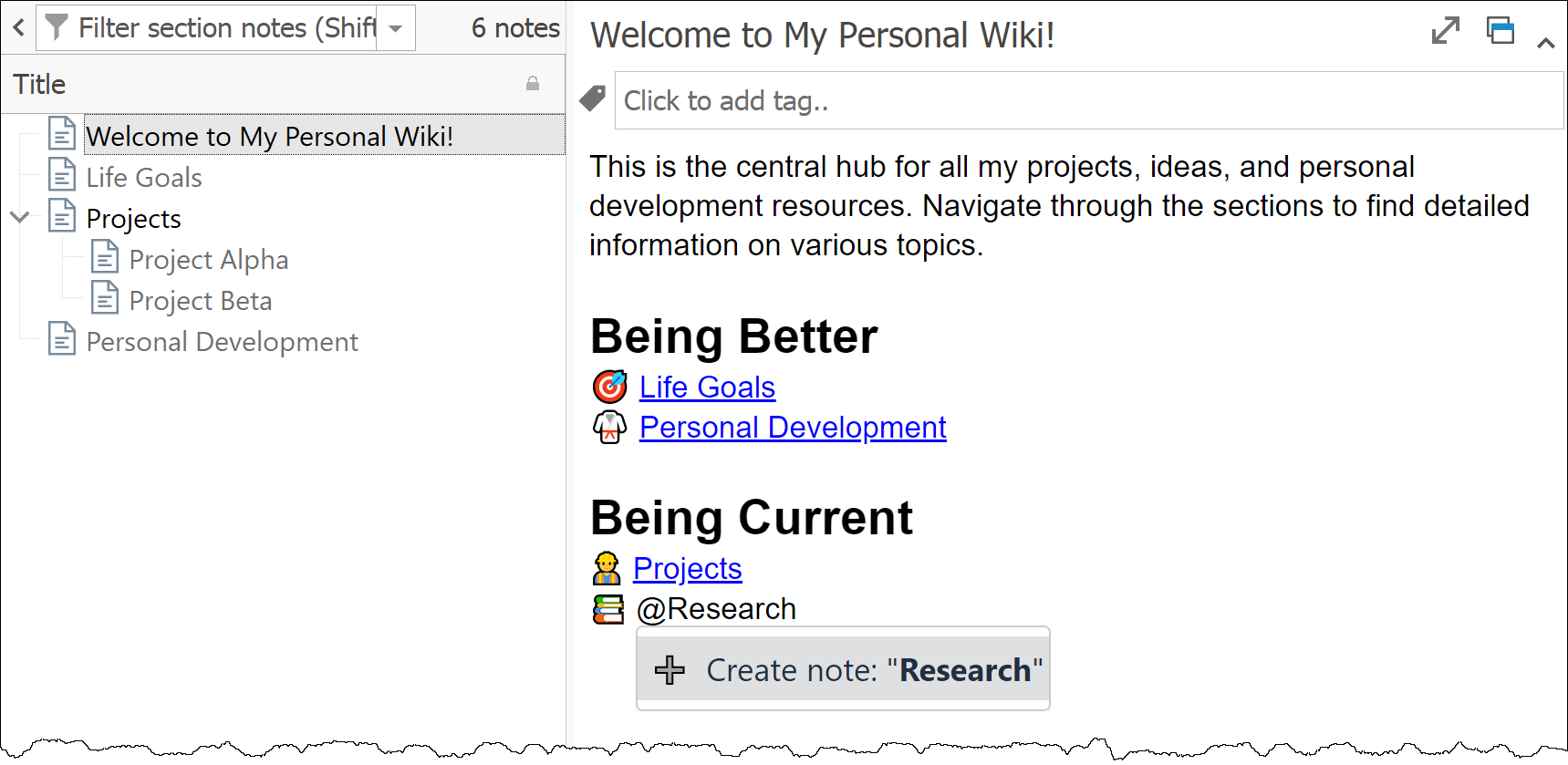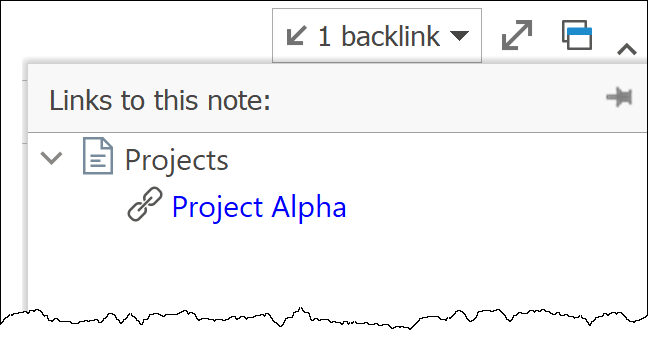
Personal wikis have become a crucial tool for anyone looking to organize their life more effectively. Whether you're a student, a professional, or just seeking better organization, the right personal wiki software can transform the way you manage information. Due to its free-form nature, setting up a personal wiki requires minimal effort and it's straightforward to maintain and update with new information.
This guide aims to provide you with a comprehensive overview of the best personal wiki software options available, showcasing their key features, benefits, and how they can improve the way you capture, store, and retrieve information.
Learn about personal wiki
What is a Wiki?
Wikis, originating from the Hawaiian word for "quick", are collaborative hypertext publications accessible via a web browser. They can contain multiple pages dedicated to different subjects. While Wikipedia is the most renowned example, the first wiki software, WikiWikiWeb (now archived), was created in 1995 by Ward Cunningham.
Wikis differ from the traditional content management systems because the pages don't have specific owner, and in most cases, everybody is free to create and edit pages.
This openness fosters a sense of community among users. It allows for rapid content development and knowledge sharing. Mistakes can be quickly corrected, and new information added seamlessly. The collective effort ensures wikis remain up-to-date and relevant.
What are the different types of wikis?
External wiki
External or public wikis are accessible online and function as knowledge hubs on various topics. Wikipedia and WikiTravel, both using MediaWiki open-source wiki software, are prominent examples.
These platforms allow users to contribute content, edit existing pages, and share insights on a wide range of subjects, fostering a collaborative information-sharing environment.
Internal wiki
Internal (or private) wikis are confined to specific teams or entire companies. They're pivotal for managing a company's internal knowledge base, including processes, guidelines, and policies.
Such company wiki fosters a collaborative environment, allowing for the continuous updating and sharing of company knowledge among team members. Private wiki software ensures this information remains secure and accessible only to authorized personnel, enhancing confidentiality.
Personal wiki
Personal wikis, unlike public and private variants, are tailored for individual use. Technically, personal wikis often differ from standard wikis. In comparison to the standard wiki, personal wiki has a single owner and user - you. They contain personally relevant information and are typically not intended for public access.
This shifts the technical needs for personal wiki engines - you don't require a public web server and sometimes, no server at all! Desktop wiki software, which operates as a standalone, local, and often offline wiki, is ideal for these scenarios.
Thus, a personal wiki is always a single-user wiki. When installed on your computer, it's also a desktop and local wiki. Often, it's an offline wiki, as the data is stored on your system, eliminating the need for internet access. Some versions can be installed on portable devices like USB drives, offering a portable wiki solution.
What is desktop wiki?
A desktop wiki software is a type of application designed to serve as a single source of truth. It allows users to create, organize, and manage a collection of interlinked notes or documents on their desktop computer, much like an offline, personal Wikipedia. These applications enable individuals to structure their information in a flexible and dynamic way, supporting links between pages, tagging, and sometimes even multimedia content.
Desktop wiki tools are particularly useful for personal knowledge management, project documentation, research, and learning purposes, as they help in organizing information in a non-linear fashion.
Personal wiki glossary
- local wiki - data stored on your computer, not in the cloud (see also offline wiki)
- offline wiki - operates without Internet access (see also local wiki)
- portable wiki - installed on a portable drive for mobility
- single-user wiki - exclusively for a single owner and user
- standalone wiki software - another term for offline desktop wiki software
Why do you need a personal wiki?
Personal wikis serve various purposes:
- Empty your head - create an external brain for yourself. Write down everything that is keeping your mind busy.
- Note-taking - use it as a flexible note-taking app. Start a new page for each idea in your personal wiki notebook.
- Personal knowledge base - do often forget how to do certain things? Write down the exact steps for future reference.
- Client management - create your own customer relationship management system by writing down client details, meeting notes, and important dates.
- Project management - keep all the nifty details about your next project in one place.
- Research - consolidate research notes and references in one place.
- Free form database - wondering how to keep track of your collections? The personal wiki can be your friend here..
What are the requirements for the best personal wiki software?
While public wikis need strong collaborative features and comprehensive page history, and revisions, personal wikis have different requirements. Ease of use and tools to organize pages are the top priority here.
- Ease of installation - no need to dwell on this one. Best personal wikis should not require installing additional software or a server. They should be usable even by non technical users.
- Text editor - traditional wikis often require writing pages in a special markup like Wikitext or Markdown. However, for a personal wiki, you should be looking for tools that offer visual text editing (also known as WYSIWYG - what you see is what you get). It makes writing easier and faster, because it is not prone to errors and you see your changes instantly.
- Rich text formatting - whether you prefer plain texts or beautifully formatted pages depends on your needs and preferences. That will determine how advanced the formatting features of the text editor should be. However, almost everybody needs two types of content to have a fully functioning wiki. Strong image support for visual representation of ideas, places, and people and tools for creating tables for structured data.
- Bi-directional linking or backlinks - you should be able to quickly see all connected pages and navigate between them easily. They essentially link related wiki pages.
- Full-text search - all wikis need a powerful search function for finding your information. If you are power user, look for engines that offer advanced search syntax, where you can specify in which parts of the page to search and what kind of pages to find.
- Page revisions - keeping track of changes to your pages is not as important as in a public wiki but could be helpful in some cases.
- Encryption - it is good to have some form of password-protection, if your wiki contains sensitive private information and confidential data.
- Portable wiki - your work may require that you travel a lot and use different computers. Then having your wiki on a USB drive can be a lifesaver.
- Table of contents - it is useful to have a list of all wiki pages for easier navigation. Some personal wikis also allow for having your pages in a hierarchy, not just in a flat list.
- Import - probably you already have much of the data for your personal wiki available on your computer in the form of documents, spreadsheets, and PDFs. In that case having strong import capabilities is a must for jump-starting your wiki.
- Offline wiki - this is strictly optional, depending on your preference, but in some cases you want your wiki to be independent of Internet access, especially if you are security conscious or on the go
How to make a personal wiki?
To create your private wiki, you need access to the right private wiki software first.
You can use MyInfo to create personal wiki for yourself. There is no steep learning curve and you need no technical knowledge base (no HTML, CSS, or JavaScript).
Download and install MyInfo
MyInfo is a stand-alone Windows software that you can install on your computer.
Download your 30-day free trial and install it on your PC.
Create your wiki
Create your new private wiki in MyInfo using File > New Notebook. This will give you a new wiki with a single page in it. Use it as a starting point for your personal wiki.
Populate it with information
Start by creating the high-level structure of your private wiki. Create a page for each high-level topic like Goals, Projects, Research, and so on.
Then you can create individual pages for each project or area of interest. Feel free to use the powerful rich editor to format content of your pages and include images, tables, links, and attachments.
If you already have existing information that you want to add to your wiki, you can do that. Use File > Import for importing multiple pages or Insert > Note From File to insert files as single pages. MyInfo supports a variety of import formats like text, Word documents and can even import entire folders with from your computer.

Interlink pages
Link or create new pages directly in the text editor by typing @ and the name of the page.

Use MyInfo backlinks feature to quickly navigate between linked pages.

Use your wiki
Use the side note-list to view your content hierarchy and navigate between pages. Explore MyInfo advanced features like global search to unlock the full potential of your new personal wiki!
Download MyInfo today and get started!
Personal wiki software picks for 2024
While numerous personal wiki systems exist, many require technical skills or additional software. We've selected the best wiki software tools. These two user-friendly programs are for personal use and offer easy access to your content.
We also list few other tools that serve as decent wiki software.
MyInfo (Windows)
A top choice for Windows users, personal wiki software for Windows MyInfo is a standalone desktop-based personal wiki app. It's easy to install, offers a WYSIWYG editor, rich formatting options, and robust search capabilities. MyInfo supports password protection and can be installed on portable devices. It has a great table of contents for navigating the pages, strong linking functions and imports many different file formats.
TiddlyWiki (browser-based)
For Mac or Linux users, TiddlyWiki is a solid choice. It is an open source wiki. Although not as powerful and easy to use as MyInfo, it is one of the good wiki tools. It is easy to install (you just download a copy of it on your computer), but compared to MyInfo there is no visual editing, so you need to use a special wiki markup (similar to the one used in Markdown files). However, all commands are available in a toolbar, which makes formatting a bit easier.
Best Personal Wiki Software (2024)
- MyInfo [best wiki software for Windows]
- TiddlyWiki [browser-based wiki]
- DocuWiki [browser-based wiki]
- Tomboy Notes [Windows, Mac, Linux]
- WikidPad [Windows, Mac, Linux]
Conclusion
In conclusion, if you need a personal wiki for Windows then definitely try MyInfo. It's fast, it's responsive, it's feature complete, and it's so simple that you need no special technical knowledge to use it. If you are Mac or Linux person on the other hand and want your own wiki, then give TiddlyWiki a go.